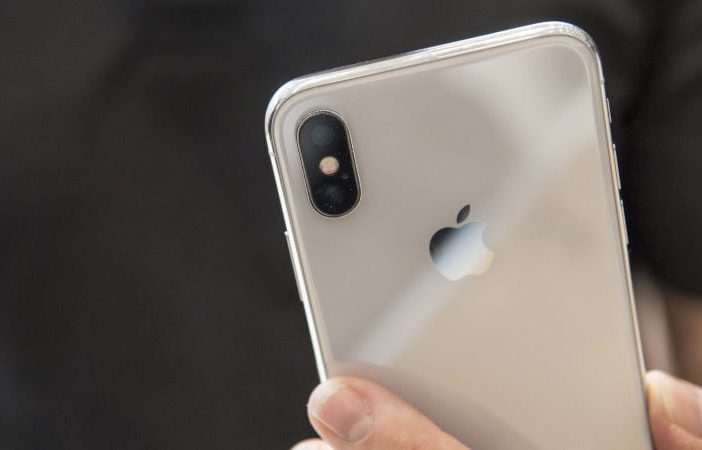
The optimistic talk about Apple’s iPhone business is crumbling before our eyes.
The company on Wednesday significantly reduced its own revenue forecast for its fiscal first quarter ending in December. Apple led the charge in blaming China’s slowing economy and trade clashes with the United States for worse-than-expected consumer transactions in the region that includes China, Taiwan and Hong Kong. Apple said its first-quarter revenue is now expected to fall about 5% from a year earlier. China may be the new “climate” – a compelling excuse for companies whose sales aren’t up to par.
But that wasn’t all. In an extraordinary letter to Apple investors, CEO Tim Cook also told shareholders what he should have said years ago: the company’s iPhone business has shifted into lower gear due to the evolution of the smartphone market and consumer behavior. This should have been absolutely predictable to anyone able to look outside of the Apple bubble. Executives failed in their duty to warn investors in advance of all this, and reality finally caught up with Apple all at once.
In his letter, Cook said that in some established markets outside of China, iPhone upgrades “were also not performing as well as we thought.” (Upgraders are people with older iPhone models who choose to buy new models.) The company attributed this to economic weakness in some countries, but also to other factors, including people keeping their smartphones longer, cell phone companies ending subsidies, rising prices of Apple devices. , and users enjoy lower-cost battery swaps rather than buying the latest and greatest iPhones.
Additionally, Cook wrote Wednesday that economic conditions slowed in China in the second half of 2018 and commercial traffic was affected by uncertainty over the U.S.-China trade war. Here too, Apple missed opportunities to warn investors.
Cook said two months ago that Apple’s business in China was “very strong,” even amid signs of an economic slowdown and months of headlines about trade tensions with the United States. He has consistently told investors that he believes the United States and China will resolve their trade dispute amicably and has given no indication that consumers are nervous or reluctant to make purchases due to the crisis geopolitics. It’s possible that the economic circumstances of the past two months in China, Taiwan and Hong Kong have surprised Apple, but executives have not issued any signs of alarm in the region.
It’s possible that conditions in China have changed rapidly, but broader trends in smartphone activity are not new. Why didn’t Cook make any of these confessions sooner?
Phone companies in the United States and other major smartphone markets have for years sought to stop offering consumers iPhones at an artificially low price of $200, as they did in the early days of the iPhone. This factor, to which are added less drastic changes made each year to the model of iPhone or other smartphones and the rise in prices of certain new devices, has led Americans to keep their smartphone for more than three years on average, compared to about two years in 2014, according to mobile industry consultant Chetan Sharma. Apple sells by far the majority of new iPhones to people who already owned one of these devices, meaning sales are affected if someone wraps electrical tape around their three-year-old iPhone and continues to do so .
This is a trend that has been years in the making. But on each occasion, Cook dismissed the question of whether changes in upgrade behavior would hurt Apple’s revenue.
During an August conference call with stock analysts, one asked Cook whether the company could continue to sell more iPhones in a few years, given the stagnant smartphone market. Cook said he thought Apple could sell more phones to people who already owned iPhones, those who owned competing devices and those who had never owned a smartphone. It was a response straight out of 2015, when everything Cook said was true. This is no longer true, and Cook should have known it.
Research firm IDC estimates that global smartphone sales declined slightly in 2018, similar to 2017. Apple seemed to be defying smartphone gravity for a long time, but that’s not the case. In Apple’s fiscal year ending in September, Apple sold barely more iPhones than the previous year. Revenues increased because Apple charged a very high price for the iPhone X and other new models – and Apple loyalists paid those higher prices. But there’s a limit to how many people are willing to pay $1,000 out of pocket for a new phone, and it looks like Apple has hit that limit in one fell swoop.
This doesn’t mean Apple’s business is collapsing. It still generates levels of revenue and cash flow that are the envy of the corporate world. But Apple has failed in its No. 1 mission as a public company: to be honest with investors about its business. The company simply denied the reality in front of it, until denial was no longer an option.
© 2019 Bloomberg LP
Tech




